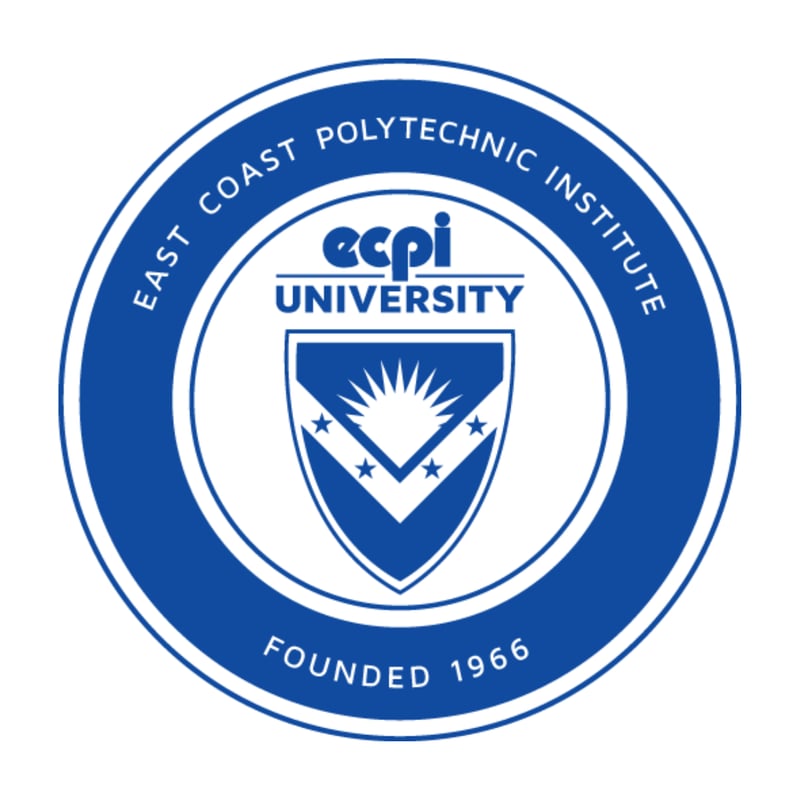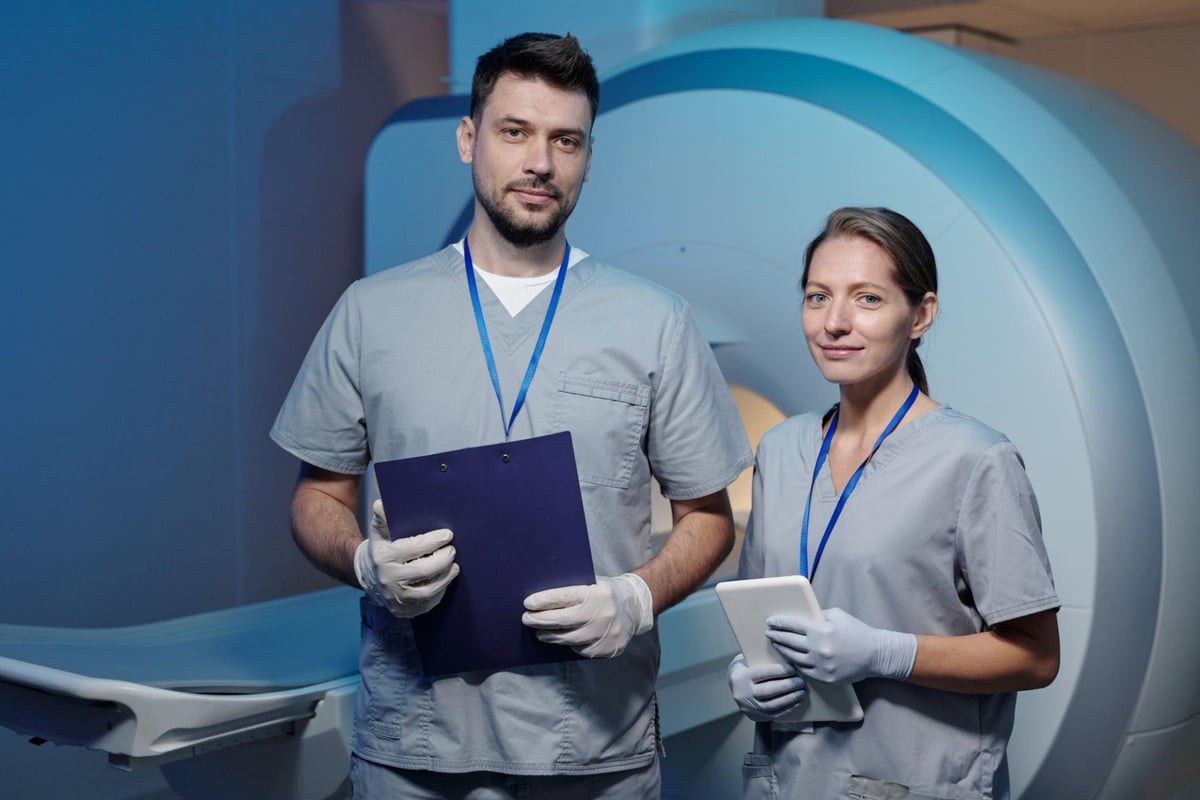
$173 to start
$2,200 total

Financial aid (may be available)

Financial aid (may be available)

Financial aid (may be available)
Our online Associate of Applied Science Degree in Radiologic Technology provides training for a career as a radiologic technologist. The program is designed to educate and help prepare the student to perform radiographic examinations, provide quality patient care, and assist the radiologist with diagnostic procedures. This program serves as a bridge for Texas-certified LMRTs to become eligible for the American Registry of Radiologic Technologists certification exam in Radiography. Advanced educational elements in anatomy and physiology, patient safety, image production, radiographic pathology, comprehensive review, and advanced clinical experience and procedures help provide graduates the opportunity to develop the skills necessary to obtain entry-level radiography positions in the field.
No cost info
Financial aid (may be available)

Financial aid (may be available)
$40 total
$125 total

No cost info
No cost info
No cost info
Focus on the creative career opportunities in the scientific field of radiology. Our Radiologic Technology program allows you to combine basic scientific principles with the creativity of art by taking radiographic images to aid with diagnosis of illness and injuries.
You can choose to take our program via the Lincoln track or the Distance track. If you take the Lincoln track, you will perform your clinical in Lincoln with courses offered in person; if you take the Distance track you will perform your clinical at a pre-approved hospital outside Lincoln and take your courses online. Once you complete the program you will have the skills necessary to be successful and prepared to take the American Registry of Radiologic Technologist Exam and apply for state licensure where you choose to work.
No cost info
In as few as 24 months, you could be ready to work as a radiologic technologist.1 With an Associate's degree in Radiologic Technology, gain proficiency in diagnostic imaging, physiology and radiation safety, and learn to confidently convey assured leadership with patients. With hands-on experience at clinical sites, on-campus labs, diverse clinical practicum settings and online coursework, you’ll be confident in your skills outside of the classroom and ready to start your career.
No cost info
The city of Jackson, Mississippi, is a promising hub for aspiring radiology technician professionals. With a thriving healthcare industry and a growing demand for skilled medical personnel, the job market for radiology technicians in Jackson is ripe with opportunities. By attending one of the reputable radiology technician schools in the area, individuals can position themselves to earn a competitive radiology technician salary and make a meaningful impact in the local healthcare community.

Radiology technicians, also known as radiologic technologists, are healthcare professionals responsible for operating medical imaging equipment, such as X-rays, CT scans, and MRI machines. Their primary role is to produce high-quality images that assist physicians in diagnosing and treating various medical conditions. Radiology technicians must have a deep understanding of human anatomy, radiation safety protocols, and the technical operation of imaging equipment.
To become a radiology technician, individuals typically need to complete an accredited radiologic technology program, which can be found at community colleges, technical schools, or university-affiliated medical centers. These programs typically take two years to complete and result in an associate's degree or certificate. The curriculum covers a range of topics, including human anatomy, radiation physics, patient positioning, and image processing.
In Jackson, the fastest path to becoming a radiology technician is through a two-year associate's degree program. These programs are offered at several educational institutions in the area, including:
These programs provide a comprehensive education in radiologic technology, including hands-on clinical training in local healthcare facilities. Upon successful completion, students are eligible to sit for the American Registry of Radiologic Technologists (ARRT) certification exam, which is a crucial step in becoming a licensed radiology technician.
If you're eager to start a career as a Radiology Technician but are situated in a different state, don't be discouraged. Your opportunity to work as a Radiology Technician might be found in Albany, Des Moines, Las Vegas, Phoenix, Washington. If you don't live near these areas, Dreambound offers a straightforward solution to scout and compare Radiology Technician classes by searching with your zip code. No matter where you live, with dedication and the right resources, carving out a career in healthcare is within your reach.
There are some online options available for individuals interested in becoming a radiology technician in the Jackson area. These programs are designed to provide a flexible, convenient learning experience for students who may have work or family commitments that make it difficult to attend traditional on-campus classes.
One such option is the online radiologic technology program offered by Hinds Community College. This program allows students to complete the majority of their coursework online, with occasional on-campus sessions for hands-on training and clinical rotations. The program is accredited by the Joint Review Committee on Education in Radiologic Technology (JRCERT) and prepares students for the ARRT certification exam.
While there are no completely free radiology technician programs available in Jackson, there are some options that can help reduce the financial burden for aspiring students. Some community colleges and technical schools in the area offer tuition assistance, scholarships, and financial aid packages to help make their programs more accessible.
For example, Hinds Community College provides a variety of financial aid opportunities, including federal grants, state-based scholarships, and institutional scholarships. Similarly, Mississippi College and the University of Mississippi Medical Center have financial aid offices that can assist students in exploring funding options, such as student loans, work-study programs, and veteran's benefits.
The certification process for radiology technicians in Jackson involves passing the ARRT certification exam. This exam tests the candidate's knowledge of radiologic technology principles, patient care, and safety procedures. Upon successfully passing the ARRT exam, individuals are awarded the Registered Radiologic Technologist (R.T.) credential, which is recognized by healthcare employers throughout the United States.
In addition to the ARRT certification, some radiology technicians in Jackson may choose to pursue additional certifications or specializations, such as those in computed tomography (CT), magnetic resonance imaging (MRI), or mammography. These specialized certifications can enhance a technician's marketability and earning potential within the field.
The job environment for radiology technicians in Jackson is quite promising, with a growing demand for skilled medical professionals in the region. Some of the potential employers for radiology technicians in the area include:
These healthcare facilities offer a range of employment opportunities for radiology technicians, from entry-level positions to more specialized roles in advanced imaging modalities. The job outlook for radiology technicians in Jackson is positive, with the Bureau of Labor Statistics projecting a growth in employment in the field over the next decade.
Becoming a radiology technician in Jackson, Mississippi, can be a rewarding and in-demand career path. With a variety of educational programs available, both on-campus and online, aspiring radiology technicians have ample opportunities to become qualified for this important healthcare role. By attending one of the reputable radiology technician schools in the area and completing the necessary training and certification requirements, individuals can position themselves for a fulfilling career that offers a competitive salary and the chance to make a meaningful impact on the local community.
If you're eager to start a career as a Phlebotomist but are situated in a different state, don't be discouraged. Your opportunity to work as a Phlebotomist might be found in Baton Rouge, Harrisburg, Minneapolis, Providence, Toledo. If you don't live near these areas, Dreambound offers a straightforward solution to scout and compare Phlebotomy classes by searching with your zip code. No matter where you live, with dedication and the right resources, carving out a career in healthcare is within your reach.
Dreambound's platform allows prospective students to find the right educational program for them through searching, filtering, and connecting with our extensive selection of career & technical education partners.
Dreambound has over 70 programs across healthcare, technology, business, and industrial trades. This includes programs such as Medical Billing, Cybersecurity, and welding.
Some of our schools offer financial aid for those who qualify. Many others offer payment plans, where you can pay the cost of class over time.
Yes, Dreambound offers many online programs. On Dreambound's search, you can filter by online, in-person, and hybrid (part online, part in-person).
Dreambound is completely free for you to use! We are supported by schools and organizations who pay to advertise on our website, so we can offer all of our career resources for free.